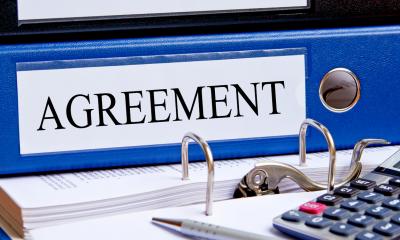
Buying a business can be quicker, easier and less risky than starting one from scratch. We answer your questions on buying an existing business
What are the main advantages of buying a business rather than starting one from scratch?
It can be less risky. If the business already has customers, then it also has an income stream. It is also easier to assess the risk because you can calculate costs, turnover and profit and predict cash flow. Getting finance could be easier, too, especially if you can demonstrate that the business is profitable and will be able to repay any finance. In addition, you won't have to look for premises, come up with a viable business idea, create brand awareness (which can be costly), train employees or purchase equipment and fittings and systems and suppliers should be in place, too.
What are the disadvantages of buying an existing business?
It can require a large investment upfront. There are other costs, too - you might have to pay a transfer agent, solicitor or accountant. Searching for the right investment requires time and expense - and that's without the due diligence process, which provides more expense and might mean you decline anyway. You could have problems with existing staff or existing contracts. There are pros and cons.
What key mistakes must I avoid when buying a business?
Aside from making a bad investment? Hiring the wrong business transfer agent can be a costly mistake. Ask your lawyer, accountant, or other business owners for recommendations. Seek feedback from buyers and sellers they've worked with. Don't sign an exclusive agreement. Get a copy of their agreement with sellers; view their terms and conditions. Importantly, get your lawyer to review any paperwork before you sign.
Why do people sell their businesses?
There are a number of reasons why an owner wants to sell a business. Some want to retire, others want to do something else or just move on. Sometimes there can be disagreements between owners. The owner or a loved one might have a serious health or personal issue that they need to addres - the business might be functioning perfectly well. That said, the business could also be in financial trouble, hence the need for watertight due diligence, as with any major purchase.
Which factors affect the asking price of a business?
There are a number of factors affecting the price. Type of business, market, location, turnover, customer base, age, the wider economy, owner's personal circumstances and motivation can all play a part. The seller usually values the business before offering it for sale, but that doesn't mean you can't buy it for less.
What other costs must I factor in when buying a business?
Solicitor's fees, you might seek tax advice from an accountant, too. Many people seek guidance from a business broker - buying a business is complex. There might be interest on loans to pay, you could even have to invest more of your own money to develop the business - or even just get it through a short-term cash flow crisis.
Which type of business should I buy?
Depends on your motivation. If it's purely about maximising return, you need to look for an investment likely to give you that, but these are usually more expensive. If you want to run the business day to day, that's a different investment altogether, but you need to have the necessary skills, experience, personality and commitment. Just because you like the idea of owning a certain type of business, that doesn't mean it's a wise thing to do. Before you begin your search, you need a fairly accurate idea about what you're looking for and how much you can afford to pay.
Where can I find businesses for sale?
Word of mouth, local and national newspapers, trade press - obviously, There are also a number of online sources such as Daltons Business and Businesses for Sale.
How important is due diligence?
Essential. Once you and the seller have signed the purchase offer ["Heads of Agreement"], comprehensive due diligence should be carried out, when you are given full access to the business' records to check it has the legal title to the assets being sold, it's financially stable and has "commercial potential" in its market.
What else do I need to assess?
Due diligence also means thoroughly checking out the competition, brand, employees' skills, intellectual property and many other things that affect the business's value. Due diligence tends to be done by a business agent or accountant. Pick a good one and they'll know what to look for. Throughout the process, seek reliable professional guidance - it's a price worth paying. Serious problems uncovered by due diligence should make you want to walk away. If everything stacks up, you can move forward with the deal.



